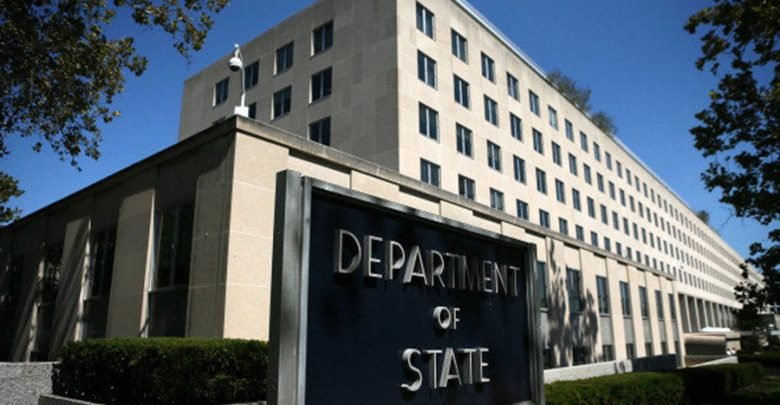
Georgia in State Department’s 2021 Report on Religious Freedom
The U.S. State Department issued a report on June 2, taking stock of religious freedom in Georgia and spotlighting major concerns voiced by local watchdogs and religious denominations.
Crimes, Conflict, Rhetoric
In 2021 the Human Rights Department of the Interior Ministry investigated 13 religiously motivated crimes, compared to 22 in 2020, and 44 in 2019, the report noted, adding the probes involved violence, domestic violence, persecution, threats, and damage or destruction of property.
The document said that Georgia’s Public Defender’s Office also received six complaints of crimes or discrimination based on religion, one less than in 2020.
In total, the Prosecutor’s Office launched proceedings against five individuals for crimes motivated by religious intolerance with all cases pending by the end of 2021, the State Department reported.
Citing the Social Justice Center, a local watchdog, the State Department reported that in January 2021, Muslims from the western village of Buknari in the Guria region and neighboring areas held demonstrations after a group of Christians assaulted two teenage Muslim boys while they “were going to or from a local prayer room established in a private home.”
The rallies resulted in resulting in clashes between Muslim demonstrators and Christians,” the report said.
“Police intervened and State Agency for Religious Issues Chair Zaza Vashakmadze said that the Muslim community’s rights had been protected, a statement that many NGOs and members of the Muslim community disputed,” it added.
- In Guria, Christian, Muslim Co-villagers Agree on ‘Peaceful Coexistence’
- Reports: Skirmish Leaves Three Worshippers Injured in Guria Region
The State Department also took note of the massive disturbances in the southern town of Dmanisi in Kvemo Kartli region in May 2021, after Christians clashed with ethnic Azeri Muslims after an ethnic Azeri shopkeeper refused to sell alcohol on credit to local Christians.
“Participants spoke of the violence, which had both ethnic and religious dimensions, in terms of ‘Muslims versus Christians,'” the report highlighted.
Local watchdog Media Development Foundation was also cited by the report as having documented 117 instances of religiously intolerant remarks in national media “including by politicians, clergy, and media figures” compared with just 30 in 2020. The CSO attributed the rise in such statements partly to the launch of Alt Info TV, an anti-liberal, Russia-friendly, alt-right network.
Alleged Mass Surveillance of Religious Groups
The State Department touched on the leak of alleged State Security Service files in September 2021, which purported to show widespread surveillance of religious leaders and others and their conversations with “political officials, journalists, foreign diplomats…”
While the Government denied the legitimacy of the documents, “some religious leaders, journalists, and others affirmed them and said the surveillance had a chilling effect on religious freedom, as it confirmed their suspicion that the State Security Service was monitoring the activity of religious groups.” the report said.
July 5 Homophobic Pogroms
The report said that some GOC priests were among the approximately 3,000 “violent individuals described as far-right actors,” who attacked journalists, ransacked the Tbilisi Pride Office and attacked the offices of sympathetic nonprofits during the July 5 homophobic pogroms.
It added that some religious leaders had accused Georgia’s State Agency of Religious Issues of pressuring the All Muslims of All Georgia (AMAG) group along with the Tbilisi Synagogue to make statements against the Tbilisi Pride’s planned “March for Dignity” for July 5, subsequently canceled amid violence.
“Unique Privileges” of Georgian Orthodox Church, Concerns of Religious Minorities
The report noted that laws and policies continue to grant the Georgian Orthodox Church “unique privileges,” and emphasized that during the COVID-19 curfew Orthodox Chirstian holiday celebrations were granted blanket exceptions, while other groups had to go through specific applications with concerns over privacy in the questions involved.
The document added that the Parliament had again failed to end exclusive tax and property privileges granted to the GOC, or extend those benefits to other groups, as mandated by the order of the Constitutional Court in 2018 for the authorities to make changes by the end of the year.
The report pointed out that in 2021 the government approved the registration of the Jehovah’s Witnesses Christian Organization in Georgia as a legal entity, but underscored the fact that six applications from other Christian groups were denied.
The State Department said that the Muslim community in Georgia continued to voice concerns over the “lack of transparency” in government decisions regarding the building of mosques.
The report also noted that the Kutaisi Court of Appeal in April 2021 upheld the 2019 decision made by Batumi City Court, which ruled the Batumi City Hall had discriminated against the Muslim community by refusing a permit to build a mosque.
Russian-occupied Regions
The State Department reported that the Russian Orthodox Church (ROC) — which recognizes the GOC’s jurisdiction over the occupied Abkhazia and Tskhinvali Region/South Ossetia — tacitly supported the “autocephalic ambitions of the breakaway churches.”
The Georgian Patriarchate representatives also claimed that authorities in the Tskhinvali region were pressuring Orthodox churches to merge with the Russian Church, according to the report.
Kremlin-backed authorities in Tskhinvali declared Georgian Church’s religious services illegal but have permitted them in practice, the report said, adding that meanwhile in Abkhaz leaders have prohibited GOC clergy from entering the region.
Citing the data of State Agency for Religious Issues, the State Department noted that only five GOC clergy and one church remained operational in the Tskhinvali Region.
The State Department also cited a report by the Democracy Research Institute in arguing that worshippers of the Georgian Orthodox Church in Abkhazia faced discrimination and were unable to travel to Georgia proper to celebrate Orthodox Christmas or Easter due to the closure of the Enguri crossing point at the time.
Also Read:
This post is also available in: ქართული Русский